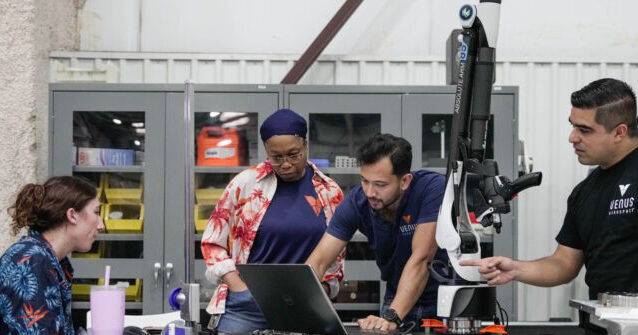Texas business leaders say prolonged economic policy uncertainty and high interest rates are weighing heavily on investment, hiring, and overall growth, according to the latest Texas Business Outlook Surveys released by the Federal Reserve Bank of Dallas.
More than 300 executives responded to the June surveys. While some voiced support for certain trade protections, many said the unpredictable path of tariff policy, coupled with sustained high borrowing costs, has created a climate of hesitation and delay. Firms reported stalled capital projects, prolonged procurement decisions, and rising operating costs, particularly in trade-sensitive sectors like manufacturing, transportation, and wholesale distribution.
“Customers are actively looking at new equipment purchases, but very few are pulling the trigger,” said one construction machinery dealer. “They are waiting on politicians to stop all the pontificating and pass some version of tax and depreciation relief.”
A transportation equipment manufacturer was more direct: “The Federal Reserve has become the problem after COVID, supply chain, inflation, tariff scare, and world events.”
In the manufacturing sector, several firms warned that uncertainty around tariffs and global trade retaliation—especially from China—have made 2025 more difficult than the COVID period. One chemical executive described the current environment as worse than during the pandemic. Others reported suppliers raising prices preemptively, out of fear of future trade actions.
Even companies that favor stronger trade enforcement expressed concern over the inconsistent application of tariff rules. A primary metals producer warned that exemptions for certain countries could lead to a loss of pricing power and force the firm to cancel planned capital investments.
Comments from service-sector firms echoed the pattern: clients are slowing down investment and delaying project starts, not necessarily because of immediate financial stress, but because of continued uncertainty about the policy environment and the cost of capital. A freight services firm said the industry is three years into a “massive rate recession.” A consulting executive noted that design and construction firms are seeing fewer proposals and longer delays in contract awards.
Texas firms reported wage growth of 3.7 percent over the past year, and expect that to slow to 3.1 percent in the year ahead. Input prices rose 4.1 percent and are expected to moderate to 3.8 percent, while selling prices are expected to rise just 2.8 percent. That combination suggests costs are stabilizing, and wage-driven inflationary pressure is easing—casting doubt on the case for continued monetary tightening.
Still, firms say elevated interest rates are holding them back, even in areas with underlying demand. Capital spending plans are slightly improved from last year, with 37 percent of firms expecting an increase, but respondents repeatedly described a wait-and-see approach, driven by rate policy as much as tariff risks.
Supply-chain problems have also resurfaced in manufacturing. Roughly one-third of manufacturers reported current disruptions, up from 13 percent a year ago, though still far below the peaks seen in 2021.
When asked about the biggest risks to their outlook for the next six months, executives most often cited softening demand, followed by geopolitical instability and domestic policy uncertainty. Inflation was no longer the top concern.
“It’s ridiculous how little activity there is,” said a printing company executive. “And I have to believe it’s because of all the chaos in Washington, D.C., and the craziness of tariff uncertainties.”
The overall tone of the survey suggests that Texas businesses are not facing a collapse in activity—but rather a persistent freeze in decision-making. Between high interest rates, shifting trade policy, and delayed tax changes, executives described a business climate defined less by crisis than by gridlock.
Read the full article here


